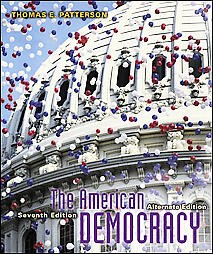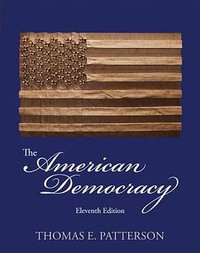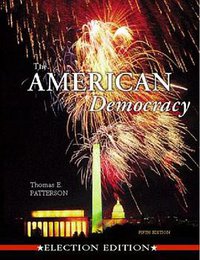The American Democracy
豆瓣
Thomas E. Patterson
简介
Anyone who writes an introductory American government text faces the challenge of describing and explaining a vast amount of scholarship. One way is to pile fact upon fact and list upon list. It’s a common enough approach but it turns politics into a pretty dry subject. Politics doesn’t have to be dry, and it certainly doesn’t have to be dull. Politics has all the elements of drama, and the added feature of affecting the everyday lives of real people.
The late twentieth century has been a period of extraordinary change in America, which raised new challenges to the practice of government. New people in the millions from Asia and Latin America have joined the American community, bringing with them cultural traditions that have made our society richer and fuller, but also more fragmented and contentious. Traditional institutions, from political parties to families, have weakened dramatically, straining the fabric of our politics but also creating the possibility of adaptive new arrangements. Minorities and women, long denied access to political and economic power, are seeking a fairer share, and sometimes getting it. America’s workers and firms have built a highly productive economy but are now facing the risks and opportunities of the global marketplace. The cold war that dominated our attention in foreign policy for decades has been replaced by ethnic rivalries and localized conflicts that raise troubling new issues of world insecurity that, so far, have defied tidy solutions.
Scholars are trying to keep pace with these changes. Never before has scholarship been so closely tied to the real world. If much of what political scientists study is arcane, we have increasingly connected our work and our thinking to the everyday realities of politics. The result is a clearer and more nuanced understanding of how American government operates. I have tried in this book to convey this advancement in knowledge in an accurate and interesting way.


